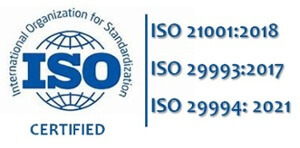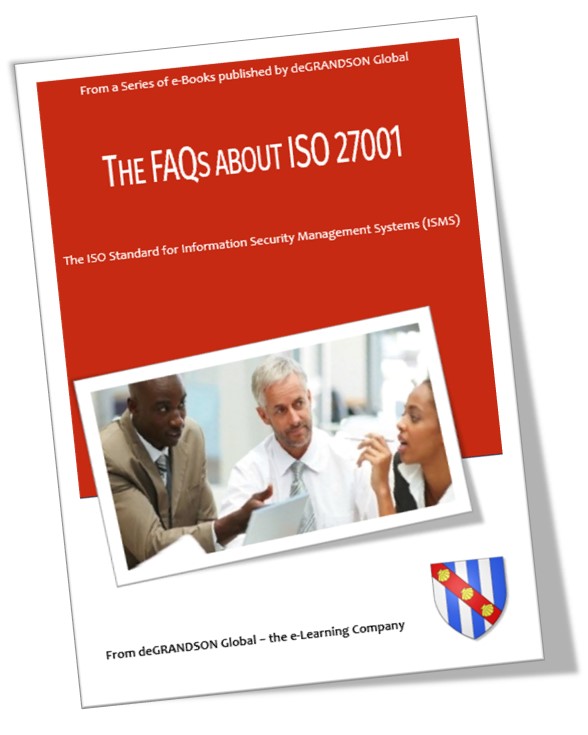-2-1.jpeg?width=499&height=247&name=Risk%20Management%20(2)-2-1.jpeg)
Here we've gathered all the commonly asked questions about ISO 27001 compliance together with expert answers in this post.
Download the Free ISO 27001 Certification ebook for answers.
We at deGRANDSON Training, a provider of ISO 27001 training, have assembled a comprehensive set of ISO 27001, Information Security Management System, FAQS...
- What does ISO mean?
- What does ISO 27001 mean?
- What is the purpose of ISO 27001?
- What is an Information Security Management System (ISMS)?
- What is the Purpose of an ISMS?
- Who Needs an ISMS?
- What are the Benefits of an ISMS?
- What does ISO 27001 Compliance mean?
- Is ISO 27001 Compliance a Requirement for Organizations?
- Who can benefit from ISO 27001 Compliance?
- What are the Benefits of having an ISO 27001 Compliant Information Security Management System?
- How much does an ISO 27001 Compliant Information Security Management System Cost?
- Who decides whether an Organization's Information Security Management System is compliant?
- How do I get an ISO 27001 Certificate?
- Are the Controls listed in Annex A enough to meet requirements?
- Why are there so many Standards (47+) in the ISO 27000 Series of Standards?
- What is the significance of ISO 27002?
- Can I get Certified to ISO 27701, Personal Information?
- Where do other established ISO Standards like PCI-DSS or the Payment Card Industry Data Security Standard fit in?
- Can we get one site Certified to ISO 27001, or must it be the entire organization?
- Is GDPR Compliance compatible with ISO 27001 Compliance
- We're an SME. Do we need cybersecurity?
- How to Choose a Certification Body?
- Are £1995 ISO 27001 Certificates You Can Get Within 30 days Legitimate?
- Why is it Important to Get Certified by the Proper Certification Body?
- How do you ensure your Information Security Management System complies with ISO 27001?
- How do you verify if an organization is ISO 27001-compliant?
- Do Management Representatives or others responsible for an ISMS need training?
- Do Internal Auditors need training?
Click on the e-Book image to get your copy...
Got a question we still need to answer?
We'd love to hear it and, if possible, answer it for you. Just use our Support Ticket System. You'll find a Knowledge Base there that might have an immediate answer for you. Otherwise, fill in a Ticket.
If you would like more, please visit deGRANDSON Support Ticket.
Related Articles
- ISO 27001:2022 - facts about the new version
- ISO 27001 Implementation in 31 Steps
- Free ISO 27001 Implementation Handbook (100+ pages)
deGRANDSON Global is an ISO Certified Educational Organization
 In
October 2021, we secured certification to three education-related ISO Standards. We now have a university-grade management system in place conforming to the requirements of …
In
October 2021, we secured certification to three education-related ISO Standards. We now have a university-grade management system in place conforming to the requirements of …
We have chosen ISO 21001 certification because it is based on independent third-party assessment, unlike IRCA and Exemplar badges (which we believe are commercially compromised). It is a ‘university grade’ standard in use globally by schools, colleges, and universities to demonstrate their competence.
